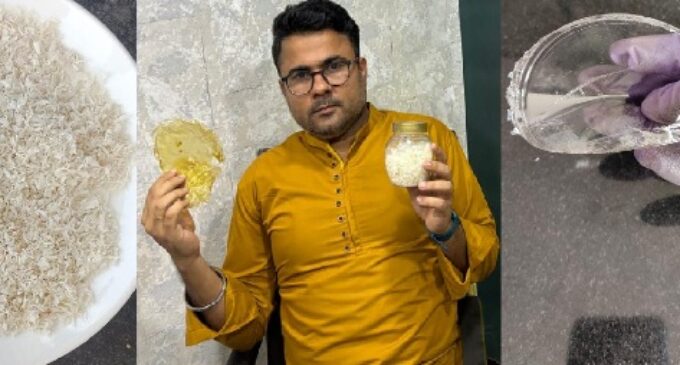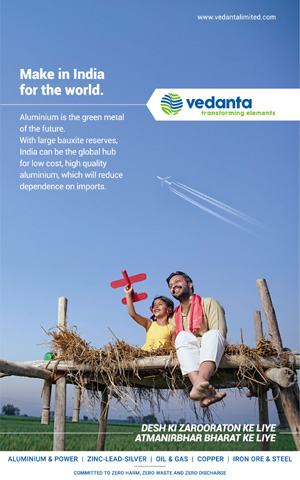Odisha scientists transform seafood waste into sustainable bioplastics

By Nalini Sahu
Bhubaneswar, Dec. 17: Researchers at Natnov Bioscience, a biotech startup in Odisha recognised by the Union government’s Start-up India initiative and the state’s Mukhya Mantri Krishi Udyog Yojana, are making impressive progress in tackling seafood waste. This year, they aim to convert 5,000 metric tons of seafood by-products into bio-economy products, including cutting-edge bioplastics.
The team has created an eco-friendly bioplastic that offers a sustainable alternative to conventional synthetic plastics. Utilizing the by-products from India’s marine fisheries, especially crustacean waste, they are harnessing a valuable source of biomaterials and natural compounds.
“Our research focuses on extracting biopolymers from shrimp waste, incorporating materials such as castor oil and fillers. The chitin and chitosan sourced from crustacean shells undergo comprehensive quality assessments, including tests for ash content, moisture, solubility, and yield. The findings confirm their premium properties,” stated Dr. Siddhartha Pati, scientific director of Natnov Bioscience, located in Khantapada, Balasore.
In a comparative analysis, the team evaluated the biodegradability of their bioplastic against conventional synthetic plastic, polypropylene. Over several weeks, the bioplastic exhibited notable weight loss and color changes, indicating its potential for various applications, particularly in food packaging.
“Our bioplastic shows strong antimicrobial effects, making it a perfect choice for food packaging. These films not only shield food from microbial contamination but also prolong its shelf life, potentially transforming the packaging industry,” Dr. Pati added.
The rising volume of solid waste due to industrialization and urbanization has highlighted the urgent need for sustainable waste management strategies. Natnov Bioscience is tackling this issue by converting seafood processing waste into high-value products such as biostimulants and bioplastics. “Through our initiatives, we contribute to a cleaner environment while supporting India’s vision of a circular bio-economy,” Dr. Pati explained.
The circular bio-economy concept aims to recycle waste into renewable resources, addressing crucial global challenges like environmental degradation and food security. “To date, we have valorized 5,000 metric tons of seafood waste, making us pioneers in Odisha in significantly contributing to the United Nations Sustainable Development Goals (SDGs),” he noted.
India’s shrimp processing industry generates substantial waste, representing 40-60 percent of shrimp weight. If not managed properly, this waste releases harmful gases such as ammonia and methane, jeopardizing ecosystems and human health. However, this waste is also a valuable secondary raw material, presenting opportunities for producing chitosan and related products applicable in food, agriculture, medicine, beauty, textiles, and paper industries.
Plastic pollution, especially from single-use plastic products (SUPPs) linked to food packaging, remains a critical environmental challenge. “Plastic waste is everywhere, impacting marine and freshwater ecosystems, as well as economies and human societies,” Dr. Pati explained. “Our biopolymer-based bioplastics provide a dual solution: minimizing plastic pollution while managing seafood waste.”
Importantly, these bioplastics possess antimicrobial features, further bolstering food security initiatives by prolonging the longevity of perishable products. This innovation is in line with India’s Swachh Bharat mission and the global drive toward sustainable development.
“By converting waste into wealth, we are proud to support a cleaner, greener planet. Our efforts resonate with the Prime Minister’s vision for a circular economy, creating meaningful effects for India’s environmental and economic landscape,” concluded Dr. Pati.






